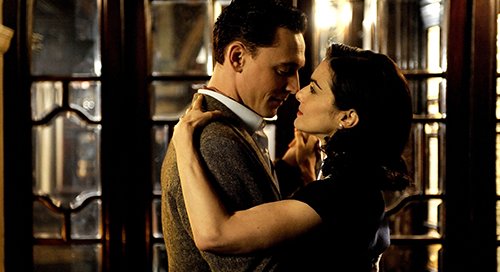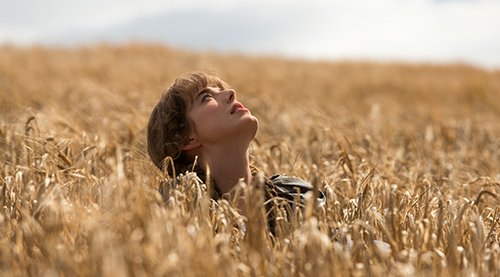
Jonathan Coe : "Terence Davies’s work is one of the most poetic ever produced by a British director"
In his famous book-length interview with Alfred Hitchcock, published in the 1960s, Francois Truffaut posed a question which has haunted generations of British film makers ever since. ‘To put it bluntly,’ he said, ‘isn’t there a certain incompatibility between the terms “cinema” and “Britain”?’ His theory was that many British charactertistics – ‘the English countryside, the subdued way of life, the stolid routine’ – are ‘anti-dramatic’ and ‘in conflict with plastic stylization and even with the stylization of the actors’.
It is true, certainly, that too many British films, both today and in the past, do not use the full range of techniques which might create a distinctly cinematic piece of narrative art and instead consist of what Hitchcock himself dismissively called ‘photographs of people talking’. It is also true that they often lack a sense of poetry. But there are a few glorious exceptions to this rule: and among them, without doubt, is the work of the late Terence Davies.
Davies’s films are not television plays shot for the big screen. His screen adaptations (such as The Neon Bible and The House of Mirth) are not transcriptions of literary texts. His films are intensely poetic and could only have been made by someone whose whole storytelling vocabulary is rooted in a deep love and understanding of cinema itself.
Davies’s films are intensely poetic and could only have been made by someone whose whole storytelling vocabulary is rooted in a deep love and understanding of cinema itself.
Jonathan Coe
This is particularly true of the way in which music interacts with images in his work. Davies, who for the last few years of his life lived in a tiny cottage on the village green of a small, idyllic town in the Essex countryside, had a great love of the English classical music of the early twentieth century. His use of the music of Vaughan Williams in Benediction, or George Butterworth in The Long Day Closes, is breathtakingly beautiful. And I first fell in love with Davies’s films almost forty years ago, when his early Trilogy was shown on television, and I was transfixed by the long sequence in which nothing happens except for the central character riding in a bus through the streets of Liverpool (photographed in austere black-and-white) while an inexpressibly melancholy tune plays on the soundtrack, performed (I believe) on a solo cor anglais. I had never seen anything like it, and I never forgot its spareness and moving simplicity.
That profound melancholy is a hallmark of all Davies’s films, and yet there is a paradox here, because in private he could be the most cheerful and mischievous of men, who enjoyed gossip and liked to offer provocatively waspish comments on the films of other contemporary directors. Despite his extensive knowledge of classical music and his ability to recite whole pages of English poetry from memory (something which he occasionally liked to do on a film set, in lieu of offering direction to the actors), his own tastes in cinema were anything but severe. Shortly before his death, he was asked by Sight and Sound magazine to choose the films which were, in his opinion, the ten greatest of all time. Did he select The Battleship Potemkin, or Rashomon, or The Seventh Seal? Not at all. He chose two Doris Day films, two British comedies from the postwar years, Mankiewicz’s All About Eve (‘because Bette Davis is in it!’) and Curtis Bernhardt’s Possessed (‘because Joan Crawford is in it!’) among others.
Terence Davies’s is not just one of the most poetic bodies of work ever produced by a British director: it is also, without doubt, the saddest.
Jonathan Coe
It’s hard to escape the conclusion that Davies’s love of cinema derived directly from his memories of watching films as a child: and watching them, crucially, in the company of his mother, whom he adored and whose death left him with a permanent and unassuageable sadness. I met him only once, when we were seated next to each other at dinner, and my memory is of a hilarious evening, although occasionally a buried anger would flare up when he discussed the perpetual struggles he faced trying to raise money for his projects. But there are few – very few – moments of comedy in his films. Terence Davies’s is not just one of the most poetic bodies of work ever produced by a British director: it is also, without doubt, the saddest. And yet, despite the overwhelming melancholy that runs throughout his films, such was Terence Davies’s patient artistry that their final effect is to make the audience feel not despondent, but uplifted. ◼
Related articles
In the calendar
Photo © Francesca Mantovani (éditions Gallimard)





